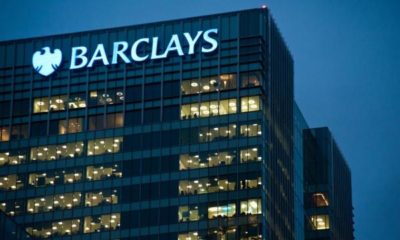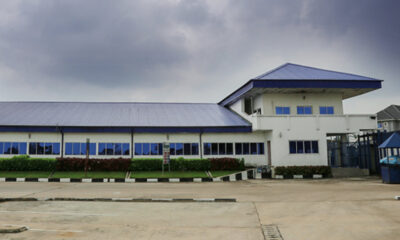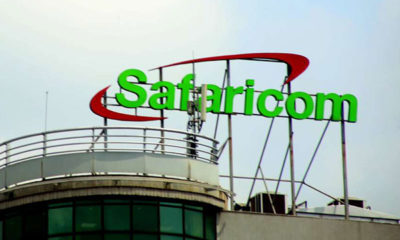Refinitiv, an LSEG (London Stock Exchange Group) business, today released the H1 2023 investment banking analysis for the Sub-Saharan African.
According to the report, an estimated US$293.4 million worth of investment banking fees were generated in Sub-Saharan Africa during the first six months of 2023, a 37% increase from the same period in 2022 and the highest first-half total since 2018.
INVESTMENT BANKING FEES
An estimated US$293.4 million worth of investment banking fees were generated in Sub-Saharan Africa during the first six months of 2023, a 37% increase from the same period in 2022 and the highest first-half total since 2018.
Equity capital markets underwriting fees totalled US$9.8 million, a 49% decline compared to year ago levels and the lowest first half total in the region since 2000, while debt capital markets underwriting fees declined 8% to a three year low of US$53.2 million.
Syndicated lending fees totalled US$160.6 million, more than three-times the value recorded last year at this time when fees fell to the lowest first half level since 2012. Advisory fees earned from completed M&A transactions in the region totalled US$69.8 million during the first six months of 2023, down 21% from 2022 levels and a two-year low.
Sixty-five percent of all Sub-Saharan African fees were generated in South Africa during the first half of 2023, followed by Nigeria (8%) and Angola (7%). JP Morgan earned the most investment banking fees in the region during the first six months of 2023, a total of US$34.6 million or a 12% share of the total fee pool.
MERGERS & ACQUISITIONS
The value of announced M&A transactions with any Sub-Saharan African involvement reached US$12.0 billion during the first six months of 2023, a 51% decline compared to year ago levels and the lowest first half total since 2020.
The number of Sub-Saharan African deals declined 23% compared to a year ago, a ten-year low. Deals involving a Sub-Saharan African target totalled US$4.9 billion during the first half of 2023, down 77% from 2022 levels and a three-year low.
The number of deals declined 23% from last year. Inbound deals involving a non-Sub-Saharan African acquiror declined 80% to US$3.6 billion, while domestic deals declined 58% to US$1.3 billion. Sub-Saharan African outbound M&A totalled US$1.6 billion, up 30% compared to the value recorded during 2022 but lower than any other first-half total since 2009.
Israel is the most popular destination by value, driven by Fortune Bliss Ventures’ purchase of a stake in mobile game developer Playtika Holding Corp. India is the most popular destination by number of deals. Energy & Power was the most targeted sector in Sub-Saharan African by value, while the highest number of deals was recorded in the technology sector.
South Africa was the most targeted nation, followed by Nigeria and Zimbabwe. JP Morgan topped the any Sub-Saharan African involvement announced M&A financial advisor league table during the first half of 2023.
EQUITY CAPITAL MARKETS
Sub-Saharan African equity and equity-related issuance totalled US$279.2 million during the first six months of 2023, a 68% decline compared to the same period in 2022 and the lowest first half total since 2021.
Just three new issues were recorded in the region, a low not seen since 1995. South African retail firm Pepkor Holdings and mining development company Premier African Minerals were the only companies in the region to raise new equity funds during the first half of 2023, through follow-on offerings.
No initial public offerings or convertible bonds were recorded. Morgan Stanley and Capitalmind Investec shared first place in the Sub-Saharan African ECM underwriting league table during the first half of 2023.
DEBT CAPITAL MARKETS
Overall Sub-Saharan African debt capital markets activity totalled US$5.9 billion during the first six months of 2023, down 67% compared to year ago levels and the weakest opening six-months for DCM activity in the region since 2013.
A total of 28 new offerings were brought to market during the first half of 2023, a 35% decline compared to a year ago and a four-year low. Ivory Coast was the most active issuer nation during the first half of 2023, accounting for 49% of total bond proceeds, followed by South Africa (38%).
Government & Agency issuers accounted for 49% of proceeds raised during first half of 2023, while Financials issuance accounts for 34%. JP Morgan took the top spot in the Sub-Saharan African bond underwriting league table during the first half of 2023, with US$1.1 billion of related proceeds, or a 19% market share.


 Forex3 weeks ago
Forex3 weeks ago
 Naira3 weeks ago
Naira3 weeks ago
 Billionaire Watch3 weeks ago
Billionaire Watch3 weeks ago



 Naira3 weeks ago
Naira3 weeks ago






 Naira2 weeks ago
Naira2 weeks ago




 Naira2 weeks ago
Naira2 weeks ago




 Naira4 weeks ago
Naira4 weeks ago






 Naira1 week ago
Naira1 week ago























